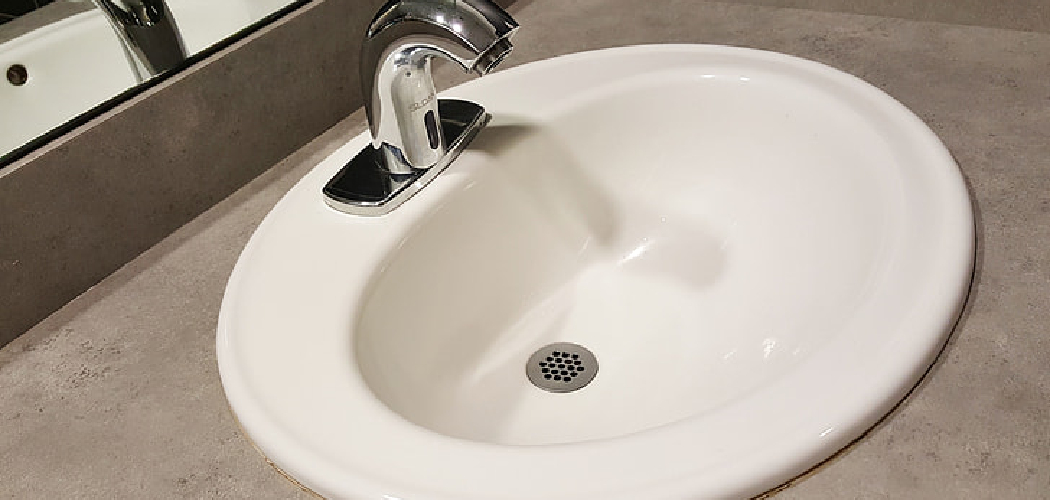A clogged bathroom sink can be more than just a minor inconvenience; it can disrupt your daily routines and lead to bigger plumbing issues if not addressed promptly. Preventing clogs from happening is not only about maintaining a smooth flow of water but also about ensuring the longevity and hygiene of your bathroom plumbing system.
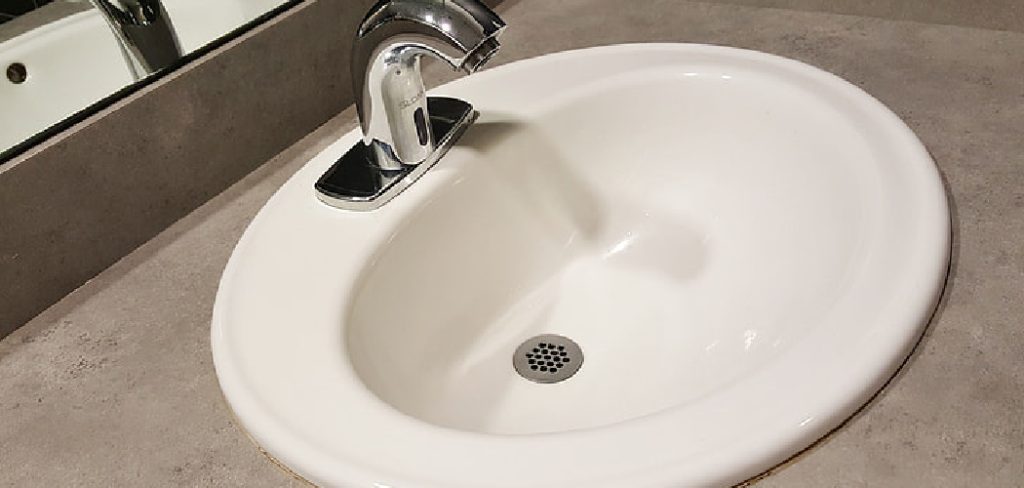
This guide on how to prevent bathroom sink from clogging aims to equip you with practical advice and simple tips that can help you keep your bathroom sink clear and fully functional. Whether you’re dealing with hair, soap scum, or other common culprits, our strategies are designed to minimize the risk of blockages and ensure your sink stays as clear as the day it was installed.
What is Causing My Sink to Clog?
Before we dive into preventive measures, it’s essential to understand what causes bathroom sinks to clog in the first place. The most common culprit is hair; as we wash our hair in the sink, it can get tangled with soap and other particles, leading to a blockage.
Another cause of sink clogs is soap scum buildup, which can accumulate over time and create a barrier that prevents water from flowing freely. Depending on your household habits and plumbing system, other factors such as food debris, mineral deposits, or foreign objects may also contribute to clogging.
You can take a few simple steps to reduce the likelihood of clogs in your sink. By incorporating these preventive measures into your regular cleaning routine, you can save yourself from the hassle and expense of dealing with a clogged bathroom sink.
Why is it Important to Prevent Clogs?
Apart from the annoyance and inconvenience of a clogged bathroom sink, there are more critical reasons why you should take preventive measures. A clog can cause water to back up in your sink, leading to stagnant water that can become a breeding ground for bacteria and unpleasant odors. Stagnant water can also damage your sink’s finish and cause discoloration or rust. In severe cases, clogs can lead to leaks and burst pipes, which can result in costly repairs and potential water damage.
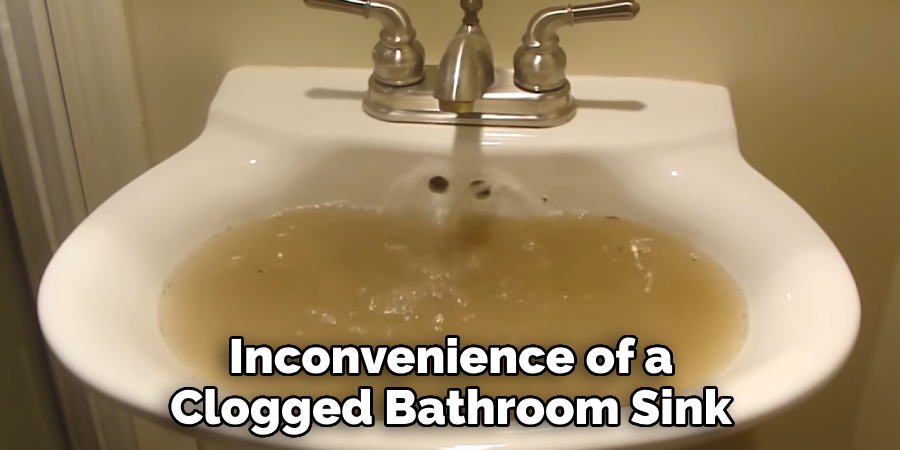
You can avoid all these potential issues by following our tips on how to prevent bathroom sink from clogging and maintaining a clean and healthy plumbing system.
11 Step-by-step Guidelines on How to Prevent Bathroom Sink From Clogging
Step 1: Use a Sink Strainer
One of the simplest and most effective ways to prevent clogs is by using a sink strainer. These inexpensive devices fit over your sink’s drain and catch any debris or particles that may cause a blockage.
Regularly emptying the strainer can save you from dealing with hair, soap scum, and other buildup in your pipes. But beware of cheap strainers that may not fit properly or break easily – invest in a high-quality, durable strainer for long-term use. You can also use a plunger to remove any debris that may get stuck in the strainer.
Step 2: Avoid Pouring Grease or Oil Into Your Sink
Grease or oil may seem liquid when hot, but they can solidify once cooled and cause significant clogs in your pipes. Instead of pouring them into your sink, dispose of these substances in a designated container or throw them away with your regular trash. But be cautious of throwing grease and oil in the garbage disposal, as they can still cause clogs if not disposed of properly. The best practice is to avoid pouring grease or oil down any drain. Although it may seem more convenient, the potential consequences are not worth the risk.
Step 3: Don’t Flush Anything Except Toilet Paper
Another common mistake that can lead to clogs is flushing items that do not dissolve quickly, such as paper towels, cotton balls, wipes, or feminine products. These materials can accumulate in your pipes and cause blockages that are difficult to remove. Remind everyone in your household to only flush toilet paper and dispose of other items in the trash. You can also place a sign in your bathroom as a friendly reminder. It may seem like a small change, but it can make a significant difference in preventing clogs.
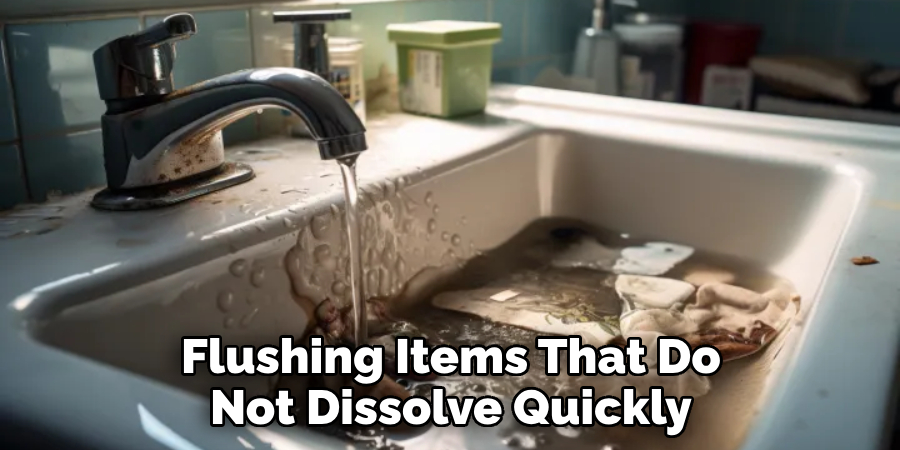
Step 4: Run Hot Water After Each Use
Running hot water for a few minutes after using the sink is an easy way to keep your pipes clear. The hot water helps dissolve and flush away any buildup that may be forming in your pipes. If you’ve used the sink for greasy or oily substances, this step is even more crucial to prevent solidification and clogs. It’s a simple habit that can go a long way in maintaining a clog-free sink. You can also try pouring a small amount of vinegar or baking soda down the drain and then flushing it with hot water for additional cleaning power.
Step 5: Use Enzyme-based Cleaners
Instead of relying on harsh chemicals, consider using enzyme-based cleaners for regular maintenance. These cleaners contain natural enzymes that break down organic waste, such as hair, soap scum, or food debris.
They are safe for your pipes and the environment and can help prevent clogs before they become a problem. You can find these cleaners at most home improvement or hardware stores. The key is to use them regularly, as part of your cleaning routine. It’s also essential to follow the instructions carefully and avoid mixing different cleaners, as it can create dangerous fumes.
Step 6: Clean Your Sink Regularly
Regularly cleaning your sink not only keeps it looking pristine but also helps prevent clogs. Wipe down your sink after each use to remove any lingering debris, and give it a thorough cleaning at least once a week. Pay attention to the drain and clean it with hot water and a mild detergent or vinegar solution. This practice can help prevent buildup from accumulating in your pipes. It’s also an excellent opportunity to inspect your sink for any signs of developing clogs or leaks.
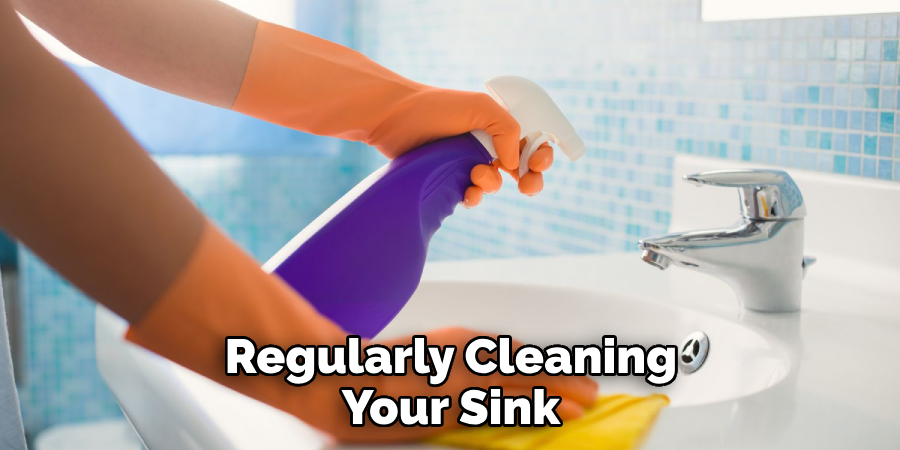
Step 7: Use Baking Soda and Vinegar
If you prefer natural alternatives, you can use baking soda and vinegar to keep your sink clear. Pour half a cup of baking soda down the drain, followed by half a cup of vinegar. Let it sit for about 10 minutes, then pour hot water down the drain to flush it out. This combination can help dissolve any buildup in your pipes and keep them clean. It’s also an eco-friendly option for maintaining your sink. There are also commercial products available that use the same ingredients, which you can try for added convenience.
Step 8: Install a Water Softening System
If you have hard water, it can lead to mineral deposits in your pipes and fittings, causing clogs and corrosion. Consider installing a water softening system to prevent these issues. A water softener removes excess minerals from your tap water, prolonging the life of your plumbing system and keeping your sink clear of buildup. But be sure to follow the manufacturer’s instructions and regularly maintain the system for optimal performance.
Step 9: Use Drain Covers for Bathtubs and Showers
Bathtubs and showers can also experience clogs due to hair, soap scum, or other debris. To prevent this, use a drain cover to catch any potential clogging materials. You can find these covers at most home improvement stores, and they are easy to install and clean. Be sure to regularly remove and clean the cover to avoid any buildup that can lead to clogs. You can also use a hair catcher or strainer specifically designed for tubs and showers.
Step 10: Schedule Professional Drain Cleaning
Even with regular maintenance, it’s a good idea to have your drains professionally cleaned at least once a year. A professional plumber has the necessary tools and expertise to thoroughly clean and inspect your pipes for any potential issues.
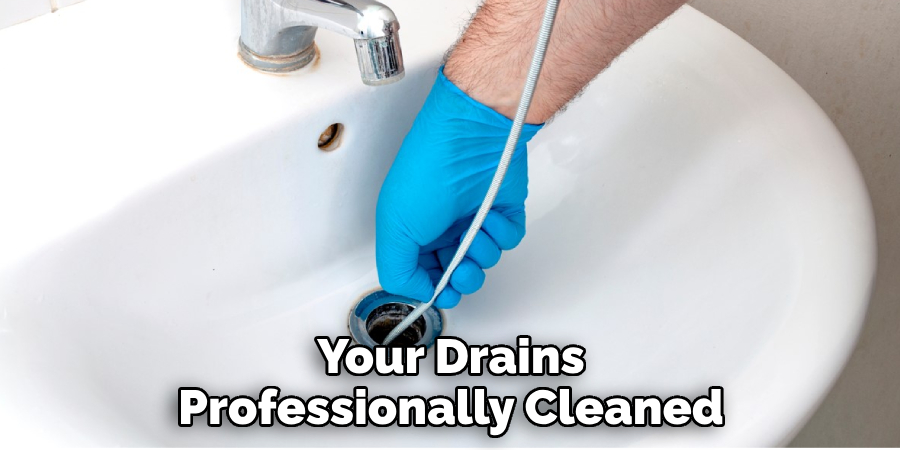
This preventive measure can help catch small clogs or other plumbing problems before they become more significant and costly to fix. But be sure to hire a reputable and licensed plumber for the job. Otherwise, you may end up with more significant problems than just a clogged sink.
Step 11: Know When to Call a Professional
If you’ve tried all these preventive measures yet your sink still experiences frequent clogs, it’s time to call a professional plumber. They can identify the root cause of the problem and provide a solution that will keep your sink clear and your plumbing system running smoothly. Don’t wait until a small clog turns into a major plumbing emergency – trust the experts to handle any issues with your bathroom sink and keep it in top condition.
Following these steps on how to prevent bathroom sink from clogging and making them a part of your routine can help you maintain a clog-free sink. By preventing clogs, you’ll save yourself the frustration and expense of dealing with plumbing problems down the road. With a bit of effort and regular maintenance, you can keep your sink running smoothly for years to come.
Additional Tips for Maintaining a Clean and Healthy Plumbing System
- Regularly check for leaks or drips in your sink, as these can also lead to clogs if not fixed promptly.
- Consider installing a garbage disposal if you don’t have one, but be sure to use it properly and clean it regularly.
- Avoid pouring harsh chemicals down your drain as they can damage your pipes and harm the environment.
- If you experience slow draining or gurgling noises in your sink, address them immediately before they escalate into a clog.
- Educate everyone in your household about proper plumbing maintenance and remind them to follow these tips for a clog-free sink. Without the right knowledge, simple mistakes can lead to significant plumbing issues.
- Consider using a hair catcher in your bathroom sink drain to prevent hair from going down and potentially clogging your pipes.
- If you notice any unusual odors coming from your drain, it could be a sign of a clog or buildup in your pipes. Address it promptly to prevent further issues.
- Regularly check the water pressure in your sink, as low pressure can indicate an underlying plumbing problem that needs to be addressed.
- Avoid using DIY methods such as plungers or chemical drain cleaners, as they can often do more harm than good and may not effectively solve the issue. It’s best to leave it to the professionals.
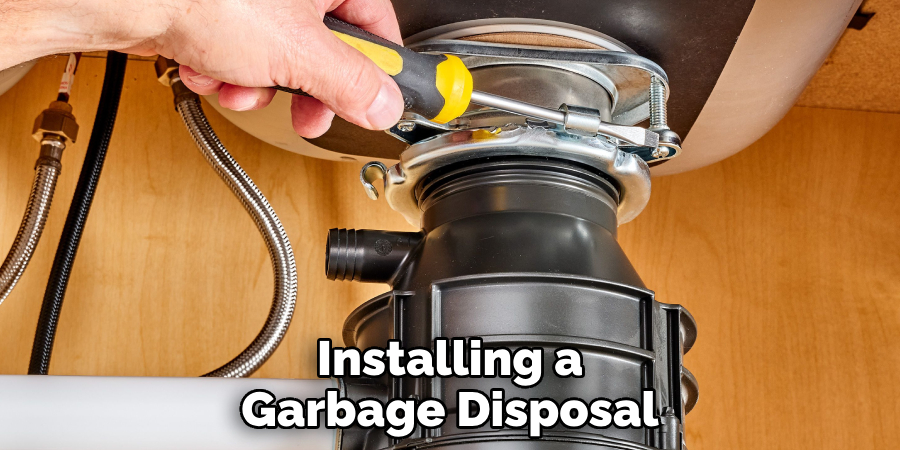
Troubleshooting Common Issues
- If your sink is still clogging despite following these preventive measures, the issue may lie deeper in your plumbing system. It’s best to call a professional plumber for a thorough inspection and repair.
- If you notice any water backup or standing water in your sink, it could be a sign of a clog that requires immediate attention. Avoid using the sink until the issue is resolved to prevent further damage.
- If your sink is emitting a foul odor, it could be due to food debris or other buildup in your pipes. Follow the steps mentioned above on how to clean and maintain your sink regularly to eliminate any odors.
- If you experience a sudden increase in your water bill, it could be a sign of a leak or other plumbing issue. Monitor your water usage and seek professional help if the problem persists.
- If you notice any discolored or foul-smelling water coming out of your sink, it could be a sign of an issue with your water supply. Contact your local water provider for assistance and avoid using the sink until the problem is resolved.
By following these additional tips and being aware of common plumbing issues, you can ensure a clean and healthy plumbing system in your home.
Things to Remember
- Prevention is key to maintaining a clog-free bathroom sink.
- Regular maintenance and proper usage can help prevent clogs and other plumbing issues.
- Know when to call a professional for more complex plumbing problems.
- Educate yourself and your family on proper plumbing maintenance to prevent future issues.
- Stay aware of any changes or unusual signs in your sink and address them promptly to avoid further damage.
- Regularly clean and maintain your sink, pipes, and plumbing system for optimal performance.
- Don’t hesitate to seek professional help if needed – it’s better to address plumbing issues early on rather than wait for them to escalate into major problems. With these tips in mind, you can keep your bathroom sink clog-free and maintain a healthy plumbing system for years to come.
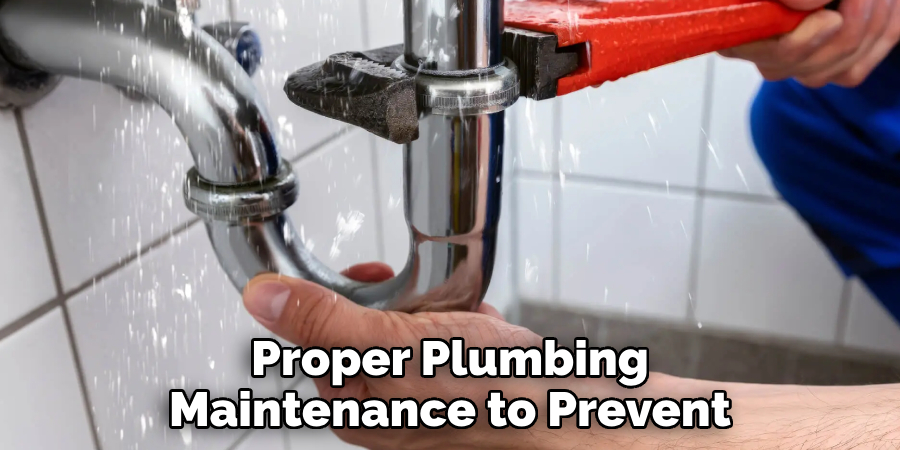
Frequently Asked Questions
Q: Can I Use Boiling Water to Clear a Clog in My Sink?
A: It’s not recommended to use boiling water as it can damage your pipes and potentially cause injury. Stick to using hot or warm water for preventive maintenance. You can also use a mixture of hot water and vinegar as a natural alternative to chemical drain cleaners. If the clog persists, call a professional plumber for assistance.
Q: How Do I Know if My Sink Drain Needs to Be Replaced?
A: If you notice your sink draining slower than usual or hear gurgling noises, it could be a sign of an issue with your drain that needs to be addressed. Call a professional plumber for an inspection and potential replacement if necessary. But with regular maintenance and preventive measures, you can prolong the lifespan of your sink drain.
Q: How Often Should I Replace the Drain Cover in My Bathtub or Shower?
A: It’s best to replace the drain cover at least once a year or as needed if you notice any buildup or damage. Regularly cleaning and replacing the cover can prevent potential clogs and keep your plumbing system running smoothly. Remember to choose a cover with a fine mesh to catch hair and other debris effectively.
Q: Can I Use Chemical Drain Cleaners Regularly?
A: It’s best to avoid using chemical drain cleaners regularly as they can damage your pipes and harm the environment. They should only be used in extreme cases and with caution, following the instructions on the label. Opt for natural alternatives or seek professional help for persistent clogs.
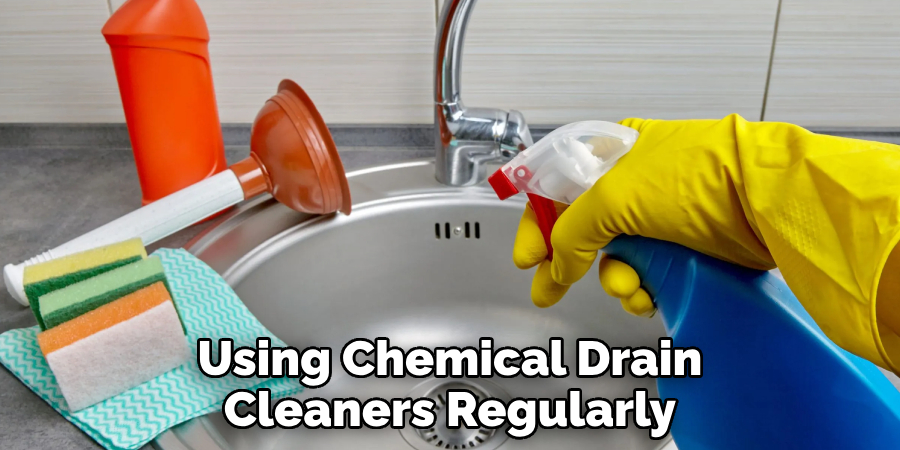
Q: Can I Prevent Sink Clogs in the Kitchen?
A: Yes, you can prevent kitchen sink clogs by following similar preventive measures mentioned above, such as using a drain cover and avoiding dumping food scraps down the drain. Regularly cleaning your garbage disposal and scheduling professional maintenance for your plumbing system can also help prevent kitchen sink clogs.
Conclusion
By following these tips on how to prevent bathroom sink from clogging and being proactive in maintaining your bathroom sink, you can prevent clogs and keep your plumbing system in top condition. Remember to address any issue promptly to prevent it from escalating into a bigger problem.
With regular maintenance and professional help when needed, you can keep your sink running smoothly for years to come. So, make sure to add these tips to your household maintenance routine for a clog-free and healthy plumbing system.

